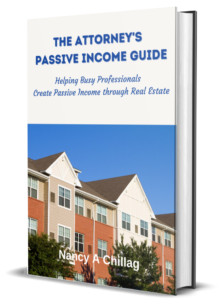If you’ve spent any time on our site at all, you’re familiar with our perspective on real estate syndications.
We think they’re awesome, that people should be interested and trying to invest in them, and we can’t wait to continue to share information about them so that more people have the opportunity to learn about these types of passive investments.
However, we also know that real estate investments are a big investment and are not the perfect choice for everyone. So, here are the top four reasons why someone should NOT invest in real estate syndications.
1) You Can’t Take Your Money Out “At Will”
Entering into a real estate syndication deal means you agree to the terms and projected hold time. Your invested capita is illiquid for the duration of the deal until the asset is sold.
If you’re passively investing in a real estate syndication deal and the hold time is 5 years, then you should plan to leave your money invested for the full 5 years, if not longer.
Other investments like stocks and mutual funds are much more flexible, and often times you can decide to sell and have your money back within minutes. In contrast, real estate syndications do not allow you to make withdraws at will.
Upon initiating or entering a real estate syndication deal, you must sign the Private Placement Memorandum (PPM). This document spells out the hold time, liquidity, and other details of the investment. If there’s anything about the idea of investing at least $50,000 and not having access to it for 5 years that makes you uneasy, turn around now.
2) You Have To Invest A LOT of Money
The minimum investment on our real estate syndication deals is $50,000, which is a LOT of money for anyone.
You could buy a car, pay for private school, or make major headway on a mortgage. There are many options on how such a large sum of cash could be used.
Our advice? Don’t put $50,000 into a real estate syndication until you’re absolutely sure that THIS is how you want to use this cash.
Want more of our advice? If you have $51,000 in your savings account, don’t you dare invest $50,000 of it into a real estate syndication.
Since your cash investment won’t be available for several years, you’ll need to ensure you have enough saved in a separate emergency fund, created other accessible savings for additional short-term goals, and have yet more cash to, well, cover life in general. Go with your gut on this one.
3) You Have to Learn A New Process
Standard rental properties work much the same way as they do in the game of Monopoly. You check out a property, buy it, rent it out, and collect rent each month.
Investing passively in real estate syndications requires you to throw all of that out the window. Passive investors almost never set foot on the property, they don’t have a relationship with the lender or the management team, and they’ll never come into contact with tenants.
You will enter into the investment when the asset is already on it’s way to closing. Passive investing is called such for a reason – because you’re not involved day-to-day and because you retain time freedom throughout the process.
4) You Have to Give Up Control
One more major fundamental difference between passive investing and everything else is the level of control you have over the daily decisions made in regards to the property, renovations, and tenants.
In regular real estate investments, you retain creative control over improvements, screening tenants, and whether you’re planning to sell within a certain period of time.
Investing in real estate syndications passively removes all of these daily hassles and puts you in the passenger seat. This can be frustrating if you’ve previously enjoyed controlling aspects of the property. However, developing a level of trust in the sponsor team, in this case, is imperative.
If you don’t think you can handle allowing a team of professionals to make decisions for you, you might as well cross real estate syndications off your list now.
Conclusion
Every syndicator and sponsorship team will shout from the rooftops about how great syndications are, and sure, they can be fabulous tools to grow wealth. But no investment vehicle is perfect and, certainly, no single investment style is perfect for everyone.
If any of the above top four reasons not to invest in a real estate syndication triggered you, maybe investing passively in real estate syndications isn’t your cup of tea. And that’s okay.
You have the power to choose what’s right for your situation, your family, and your financial goals, and you should absolutely exert that power to it’s fullest. Be honest with yourself and listen to your gut.


